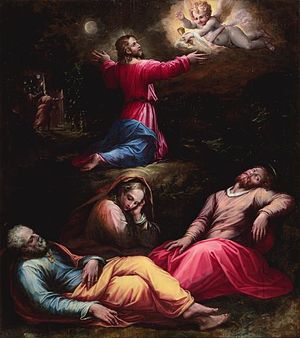Why would anybody make it up? (And other dead horses.)
In a recent post over on Exploring our Matrix, James McGrath wrote:
The depiction of Jesus in the garden of Gethsemane, in great distress and praying that the cup pass from him, is one that it is hard to imagine being invented by the later church, after they had made sense of the cross as the decisive salvific event in human history. Would they invent Jesus asking for that not to occur? It seems unlikely. But the scene makes no sense if Jesus does not believe that he must under go [sic] something traumatic. (emphasis mine)

That’s quite a bit of “logic” packed into a single paragraph. Somehow we started out with a narrative event in the synoptic gospels and we ended up with a supposed “authentic” historical event simply by applying a thought experiment.
Why does McGrath think it is hard to imagine the “later church” inventing a scene in which Jesus asked for the cup to pass? Because the cross is necessary for salvation. How could the Son of God try to wriggle out of the crucifixion when that’s the whole plan? Why is the Messiah under such distress?
Uncomfortable Christians
And indeed, the later church, even as early as the gospel of John, did seem uncomfortable with Jesus agonizing over his fate in Gethsemane. In the Fourth Gospel, Jesus knows his part in the plan and meets the arresting party head-on:
Then Jesus, knowing all that would happen to him, came forward and said to them, “Whom do you seek?” (John 18:4, ESV)
So McGrath could be correct in saying that the later church would be unlikely to create the garden scene with Jesus apparently trying to avoid death. But what about the early church?
The importance of being obedient
Two early documents (which predate our narrative gospels) in the New Testament give evidence of a belief in a Savior who demonstrated total obedience. In the Philippian Hymn we find this line:
Continue reading ““It Is Hard to Imagine” — How Scholars Invent History”
